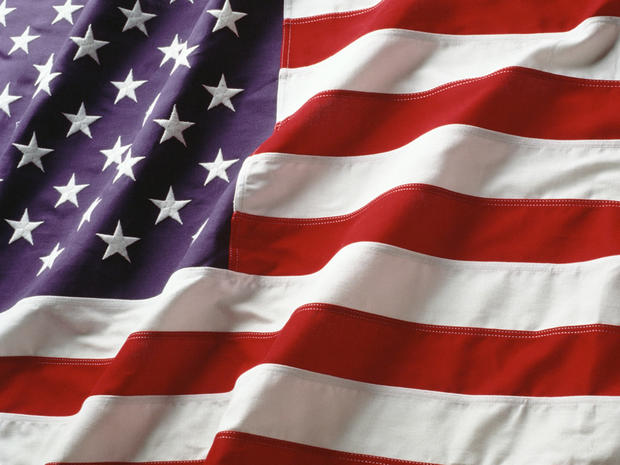Asian-Americans a fast-growing group in key states
(CBS News) Asian-Americans are a small but fast-growing part of the American population that may in the coming years have more influence -- in politics and American life in general -- than some people may realize, a new study suggests.
According to the far-reaching study from the Pew Research Center, Asian-Americans for the first time have surpassed Hispanics as the fastest-growing immigrant group in the United States. As of 2010, 36 percent of immigrants arriving in the U.S. are Asian, according to Census data, while just 31 percent are Hispanic.
Asian-Americans still make up a relatively small portion of the country -- they accounted for 5.8 percent of the population in 2011 while Hispanics, by comparison, made up 16.7 percent of the population. Still, Asian-Americans are not only the fastest-growing racial group, but also the highest-income and best-educated, the survey shows. On top of that, Asian-American communities are growing in some key political regions like Northern Virginia.
"What we're really talking about is essentially a new immigrant community," Tritia Toyota, an anthropology professor at the University of California, Los Angeles, said at a panel discussion of the survey on Tuesday. "If you hadn't been paying attention in the past five years... this may come as a big surprise."
The political impact the Asian-American community may have is limited, given that three in 10 Asian-American adults are not citizens. About half of Asian-Americans say they voted in the 2008 presidential election, according to the Pew study, in comparison to 67 percent of all U.S. adults say they voted that year (according to Census data).
Those who do vote are likely to vote Democrat -- the study shows that half of all Asian-Americans identify as Democrat or lean Democrat while just 28 percent identify with or lean towards the Republican party. That's not too far off from the figures for Americans overall -- 49 percent lean Democrat -- but Asian-Americans are more likely to support President Obama than Americans overall. The survey found that 54 percent of Asian-Americans approve of Mr. Obama's job performance.
Mr. Obama carried the Asian vote in 2008, winning 62 percent support to John McCain's 35 percent. The Obama campaign this year is making specific efforts to reach out to Asian-American voters, particularly in a few states where their influence could be key: Nevada, Virginia, Pennsylvania, Florida, Michigan and California.
Northern Virginia edge could be pivotal for Obama
Northern Virginia could be a critical region for Mr. Obama in part because of its growing Asian-American community. In Fairfax County, for instance, Asian-Americans in 2010 made up more than 17 percent of the population.
Nevada, another key state for 2012, saw its Asian-American population grow by 116 percent between 2000 and 2010, according to the Census -- more than any other state. Its Asian-American population now stands at 7.2 percent of the state's total population.
The Obama campaign held events targeting Asian-Americans in those key states, including voter registration drives and small business roundtables, around the time it launched Asian-Americans & Pacific Islanders (AAPIs) for Obama, a campaign initiative to mobilize those voters across the country. The Obama campaign has appealed to "AAPI" voters in part by pointing to Mr. Obama's own heritage (the president spent his childhood in Hawaii and Indonesia), as well as his accomplishments related to the community, such as the fact that he has doubled the number of Asian-Americans sitting on the federal bench.
Republican Mitt Romney's campaign, meanwhile, is in the process of hiring Asian-American coalition directors. They will focus on recruiting, identifying and educating Asian-American voters about Romney's economic message, according to the campaign, and tap into Asian American media.
"Our campaign recognizes the importance of Asian-Americans and we will make strong push to reach out to this growing community," said Romney campaign spokesman Ryan Williams. "Like all voters, Asian-Americans are concerned about our struggling economy and we will appeal to them by focusing on Governor Romney's pro-growth message and his plans to create jobs and return fiscal responsibility to Washington."
Appealing to Asian-Americans can be more challenging than reaching out to other constituencies, given the level of diversity within the community. The Pew Research Center survey represented the overall Asian-American population, but it also included large enough samples to analyze the six largest country-of-origin groups: Chinese-Americans, Filipino-Americans, Indian-Americans, Vietnamese-Americans, Korean-Americans and Japanese-Americans. All of those groups combined comprise just 83 percent of the total Asian-American population.
The rise of Asian-American immigration also adds a new dimension to the debate over immigration policy. "The dominant image [of immigration] people have in their minds is of a particular slice" of the experience, Karthick Ramakrishnan, a political science professor at the University of California, Riverside, said Tuesday -- namely, the Hispanic experience. "Immigration is more complicated than that."
Pew found that 72 percent of Asian-Americans agree with the statement "immigrants today strengthen the U.S. because of their hard work and talents," while only 17 percent agree with the statement that "immigrants today are a burden on the U.S. because they take jobs, housing and health care."
Elaine Chao, the secretary of Labor in the George W. Bush administration, said Tuesday that the issue at hand isn't the racialization of immigration. "It is legal versus illegal immigration that really divides the country," she said.
This story was corrected to note that the Pew survey represented the overall Asian-American population, not just the six largest country-of-origin groups.

